It's advisable to come early, as there are 300 delegates to be registered. The conferences will commence at 09:00 sharp, in order to meet the event schedule.
![]() Location: In front of the main Conference Hall
Location: In front of the main Conference Hall
days
hours
minutes
seconds
The journey has begun with a single conference in October 2017 and the series has been growing ever since. With 4 conferences throughout 2018 and another 3 in 2019, featuring speakers from 4 continents and 24 countries, the event quickly established itself as the HR Analytics conference at the Old Continent. That was followed by a recent forum in New York City in May. Here's what people had to say about it:
After the NYC success story, it was only natural to continue the US series with a major event on the West Coast. Speakers from US, Canada, Europe and Asia will share the stage over the course of 2 full days to provide delegates with an unprecedentedly rich cultural and professional experience, with case-studies on best-practices with People Analytics, ONA, Strategic Workforce Planning and data-driven HR from around the World. So, join us!
The story starts with a simple fact – you cannot ignore digitalization and stay competitive in business, let alone be a market leader in any business. We live in a world where a smartphone app can change the market landscape in a matter of weeks. Love it or hate it – you can’t ignore it. Improved workforce productivity and performance, enhanced employee experience and wellbeing, and better HR reporting at a strategic level, are essential to the success of organizations and their ability to survive, now and in the decades to come. All this comes at a time when talented and highly skilled employees are not just becoming harder to recruit and retain, but actively rethinking their desired relationships with employers.
So, the HR has to go digital; and as organizations look to cope with these changes, they are embracing the workforce analytics at ever greater pace. These analytics can be used to improve workforce productivity, enhance employee experience and wellbeing, and increase the impact of HR overall. Undoubtedly, workforce analytics is central to the future of HR, as it lies at the heart of initiatives to personalize the employee experience, optimize organizational design and improve team collaboration and effectiveness.
Now, that is – by any accounts – a pretty big deal.
Delegates come first. Always
A truly outstanding event has SPEAKERS deliver talks with ENERGY and PASSION while showcasing RELEVANT CONTENT, above everything else. We keep it that way.
The core nature of this conference series is the PRACTITIONER'S APPROACH. That is to say, presenting real-life case-studies from the Corporate HR world. We explicitly do not feature any Sponsored Talks, Product Demos, Sales Pitches or Vendor Presentations on the main stage.
DATA-DRIVEN HR & PEOPLE ANALYTICS FORUM is not a trade-show. It is an independently organized HR conference for HR practitioners. It features a variety of Ted-style talks in a vendor-free conference room.
The purpose of the DATA-DRIVEN HR & PEOPLE ANALYTICS FORUM is to be a meeting place of Corporate HR practitioners and other People Analytics professionals, to share their views, insights and knowledge among the industry peers. We firmly believe that a vendor-free stage provides the optimal conditions to have a valuable, engaging, fun and stress-free learning experience with colleagues and other HR professionals.




DATA-DRIVEN HR & PEOPLE ANALYTICS conference series brings you the blueprint on how to successfully implement HR Analytics at strategic and tactical/ops level. You will hear real-life examples form the Global Fortune500 corporations, as well as some of the World's leading academic and business minds in the field, presenting data-based facts & figures, trends & tendencies for the near, mid and long-term outlook of the Future of Work.
No Sales Pitch on main stage
As the Official Conference Partner of DATA-DRIVEN HR & PEOPLE ANALYTICS PRACTITIONERS FORUM you will enjoy the following benefits:
· Dedicated premier space in the conference networking area
· Access to delegates and speakers during networking breaks
· Opportunity to meet many of the senior decision-makers, as well as practitioners in this industry segment
· Your roll-wall inside the main conference room placed on the main stage, so everyone sees it at all times
· Your roll-wall in the networking area
· Opportunity to place your marketing materials directly into delegates' bags (every delegate receives one)
· Your logo with hyperlink to your website / LinkedIn / FB / etc page on the conference website
· Two (2) complimentary tickets for the conference (rules of engagement apply!)
Rules of engagement:
1) Complimentary tickets provide full access to the main conference room, to listen in on the presentations and panel-talks. These tickets are solely granted to HR professionals and/or Senior Management of your organization.
2) Marketing, Sales, Business Development, Client Engagement and other vendor representatives are not granted access to the main conference room.
3) Complimentary tickets are not issued to your customer-facing representatives in your vendor boot.
4) Your representatives in your vendor boot, located at the HR Tech networking space, will be issued a different pass.
5) Complimentary tickets are issued to specific people, based on the above points 1-3 and cannot be transferred to others without prior written consent.
Pricing:
For commercial details, send your inquiery to sponsors@peopleanalyticsforum.eu.
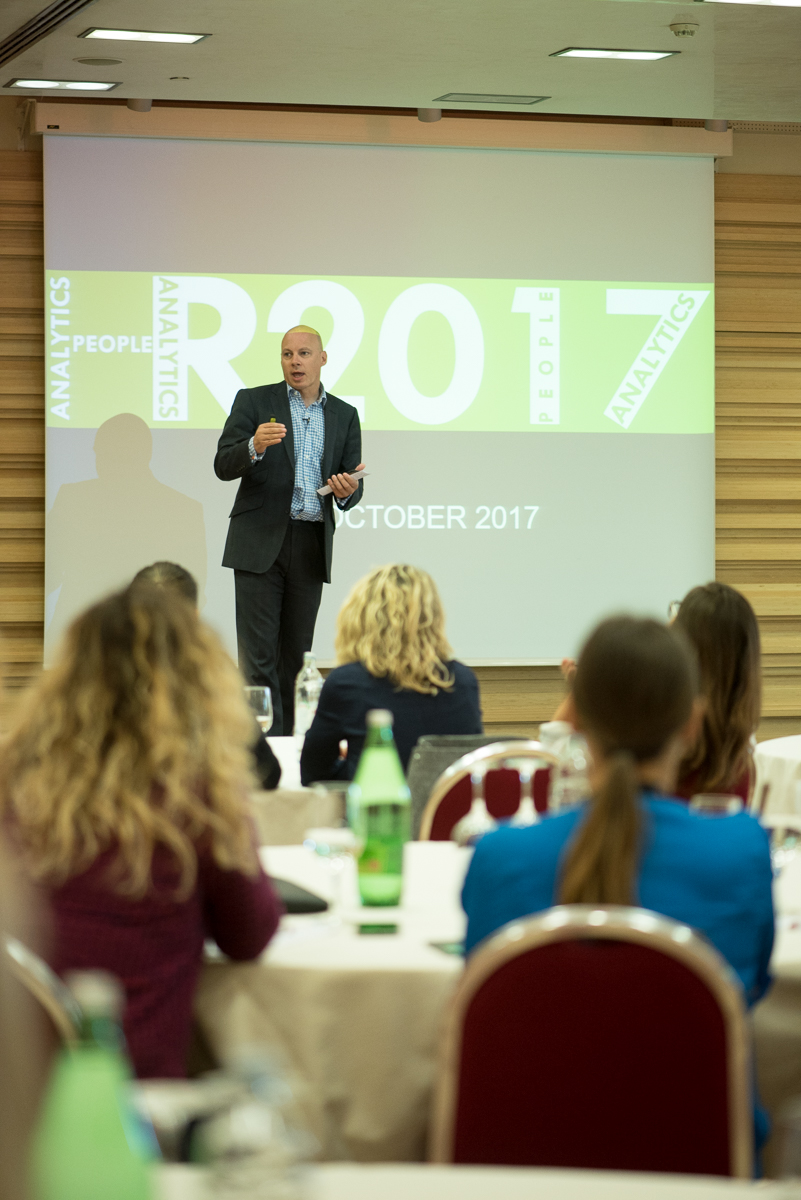
Technology is changing the world of work and big data plays a key role in the process. Sorting out the “ocean of information” is the game-changer. HR analytics is not yet-another-hype, but a trend that is growing and is here to stay. It is increasingly becoming the “way we do things around here”. If you don’t have the right data – you are uninformed. If you have too much of unsorted data – you are overwhelmed. As a busy HR person, you can’t afford either. The quality of your decisions has a direct and lasting impact on your organization. The HR analytics provide a solution to that challenge.
DATA-DRIVEN HR & PEOPLE ANALYTICS NYC FORUM is a 2-day conference dedicated to presenting, understanding and embracing the use of data-driven analytical approach in HR, and business as a whole. The data-driven decision-making process is recognized as the key differentiator in today’s workplace, giving companies who apply it properly a substantial edge.
This global series of conferences features various Fortune500 corporate practitioners and top academic experts, who share their knowledge and best practices, so that you as a delegate can readily apply it in your real-world job.
The goal of this conference is to help you – the attendee – to choose the best practices, tools & techniques for your organization and your own role. Some of the topics that we will talk about include:
· Building HR Analytics Functions, Teams, Capabilities and Support
· Data-Driven Recruitment and Talent Management
· Culture, Engagement and Employee Experience
· Smarter Workforce Planning for Growth or Downsizing
· Technology-Enabled Employee Insights
· Diversity, Inclusion and Belonging
· AI in HR
· Workforce Differentiation and Predicting Attrition Impact
· Identifying and Developing Leaders among Candidates and Talent Pools
Most notably many of the Global Top People Analytics Thought-leaders and influencers and many, many:
· CHROs, VPs HR and HRDs
· HR Analytics function heads
· HR Business Partners for Analytics
· Talent Acquisition & Recruiting Leaders and Analysts
· Analytics professionals and SMEs
· Talent Development & Learning Leaders & Analysts
· Workforce Planners and Organizational Designers
· Workforce Analysts aspiring to use more sophisticated analytical tools and techniques
· Other senior managers, professionals and SMEs from HR, IT, Data and Analytics functions
· Media, Press and Academia representatives
Learn about latest trends, applications, tools & best-practices
Understand why is HR analytics estimated as €18Bn market
Meet top speakers from North America, Europe and the World
Participate in discussions and have fun
Presentations you will hear are from real world. Presenters will talk about REAL projects, REAL challenges, REAL issues, REAL success & failures and REAL people. No death by Power Point!
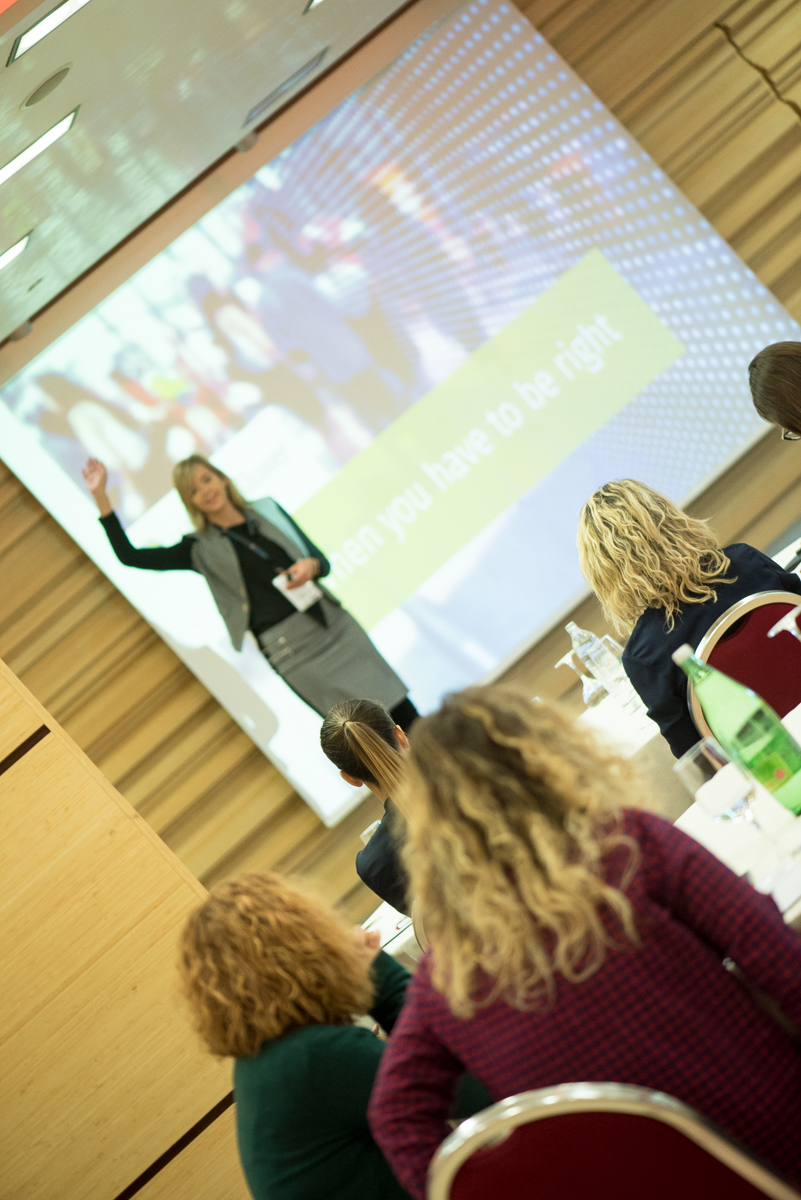
You will get the practical know-how, insights and detailed blue-print on how other's walking in your shoes have done it, what their challenges were and how they have overcome it, what tools, techniques and process they have used, whether they had (or lacked) the executive support and why that was crucial to their success and much, much more. You will walk out after the two days of this conference smarter and probably more determined to make People Analytics key priority in your organization. Better yet, you’ll be armed with tangible assets to accomplish your goals.
You will benefit by learning about strategic-level importance of HR 4.0 and People Analytics. You will be empowered to widen your CEO’s and other Senior Managers horizons, by pioneering successful change management initiatives. You will have data-based facts that will enable you to shift the organizational mindset from fixed to grow. You will have data-based business insights, that will enable you to present outcome scenarios to your Board. You will earn the seat at the table!
You will benefit by seeing and hearing the real stories, from the real people at operational-level of running the People Analytics Teams and departments. You will learn about the best practices in data-collection and processing, data-visualization and story-telling. You will become the most trusted adviser to your CHRO on value of data-based recruitment, talent-management, employee–satisfaction and retention, reward strategies benefits and much more.
You will benefit by learning about operational-level implementation projects of People Analytics solutions; the mistakes that others made (so that you won’t). You will be presented with step-by-step processes, the challenges and roadblocks the team encountered along the way, how they’ve gained the stakeholders support, what worked and what’d didn’t and their lessons learned on these projects.

Real people real stories
HR 4.0, People Analytics, Workforce Analytics, HR Analytics… to some it might sound “Chinese”. Then let us add the data-visualization, AI, Robotics into the mix, top it with a huge those of IT… and you might ask - are we here to “talk HR or what?!?” Yes, off course we are here to talk HR and the key-note speakers you will see and hear will do exactly that. They are here not only to give you the high-level overview of the global state of affairs in terms of adoption rates of analytics in HR, but also give you guidance and vision to what really matters and what doesn't, what's important and what's "hot air".
Naturally, you'll also hear a lot from the HR colleagues, talking about their projects and their people, what they've done, how they've done it, what worked for them and what didn’t. What they’ve learned along the way, how they’ve managed change and resistance and much, much more.
Last, but not least - you will get quality insights into research projects conducted by some of the most brilliant scientific minds, PhD’s, university professors and data-scientist, who will present their findings and its practical applications in corporate arena.
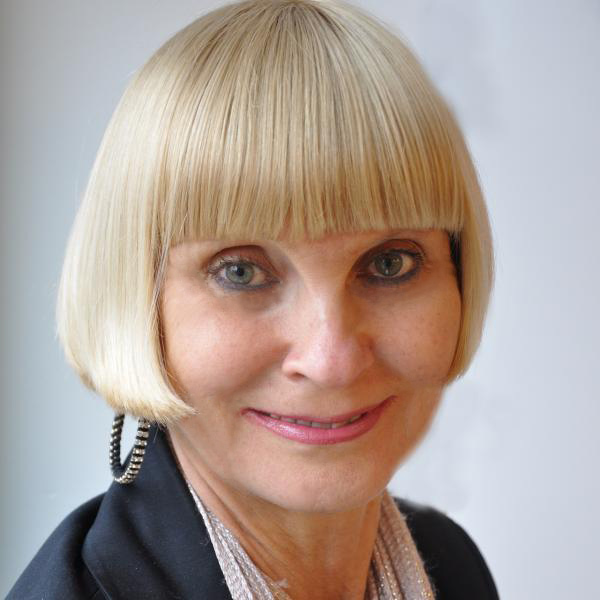
Academic Director HCM Program
New York University
Distinguished Key-note Speaker
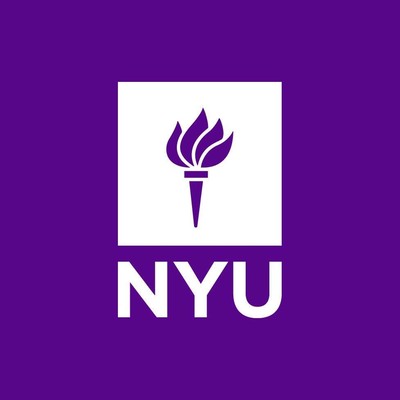

Chief Engagement Officer
Worktango
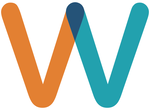
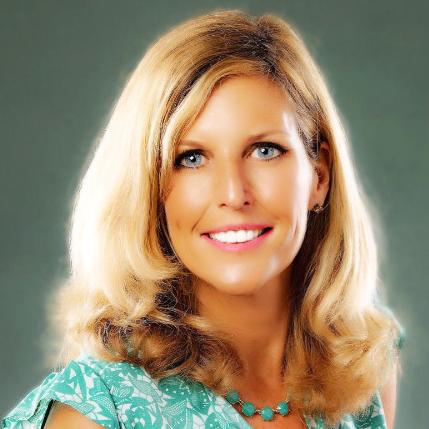
VP Talent & Workforce Research
Bersin Deloitte Consulting

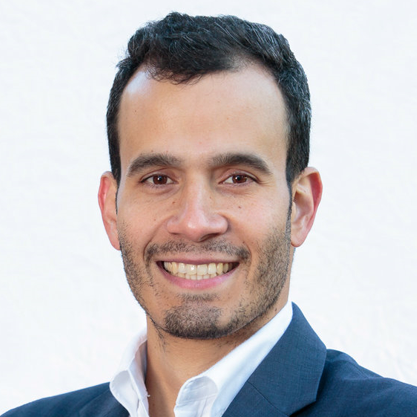
Founder
Hacking HR
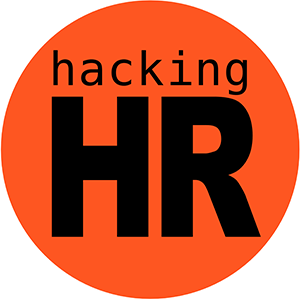
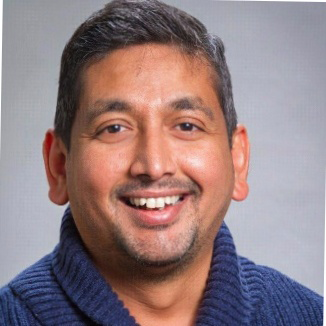
Director People Analytics &
HR Technology
Trimble Inc.
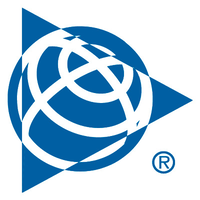
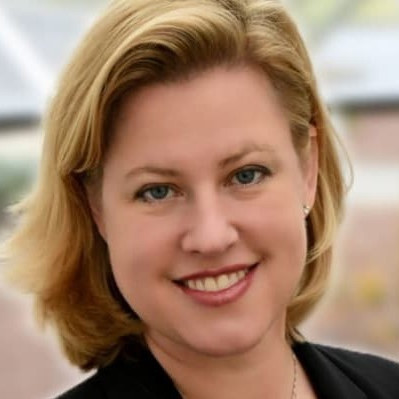
Vice President
People Analytics & Workforce Strategy

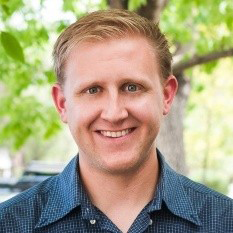
Manager HR Data Analytics & Talent
TIBCO Software Inc.
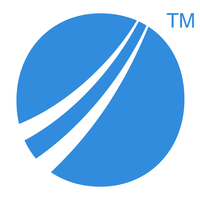

Global Head People Analytics
Product Management
Oracle

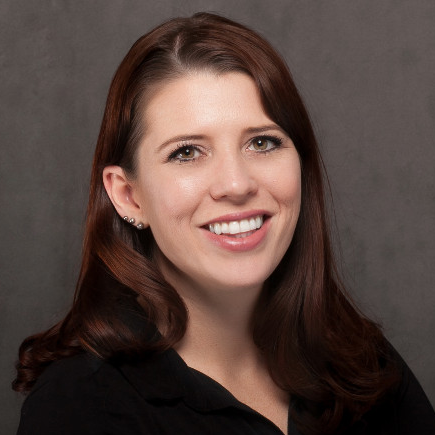
VP · Global Head of Integrated Talent Management
People Analytics, Digital Learning & Development and HR Operations
GE Digital


People Analytics Lead
GitHub


HR Data Science Expert
National Bank of Canada

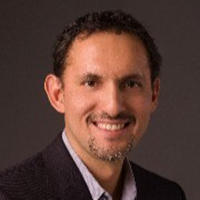
Director Reporting & Analytics
Suncor Energy


Chief Evangelist
Pacific Reach Co.

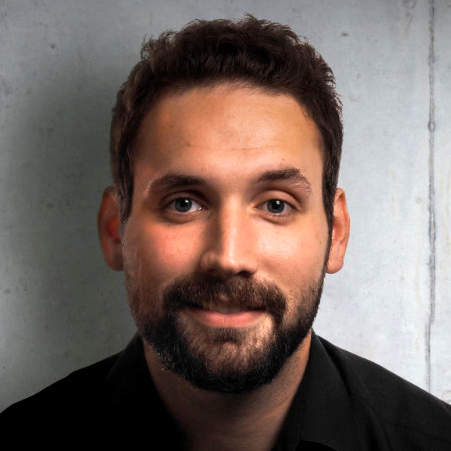
Founder & CEO
Orgnostic
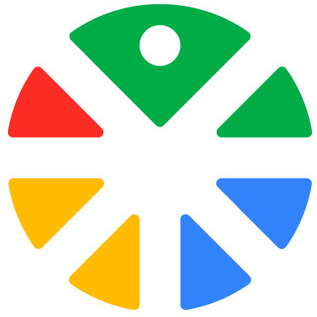

Chief People Officer
Copper
Forum Moderator

Both days start with a distinguished key-note presentations followed by a panel discussion. The program continues with case-studies from the corporate HR and success stories with People Analytics, crowned by research findings from the elite think-tank institutions.
It's advisable to come early, as there are 300 delegates to be registered. The conferences will commence at 09:00 sharp, in order to meet the event schedule.
![]() Location: In front of the main Conference Hall
Location: In front of the main Conference Hall
Who runs the show?

Charles Ashworth is the Chief People Officer at Copper CRM, Inc. where he leads the global Human Resources organization and is also a member of the governing board of directors of NCHRA, and the author of an upcoming book, The Row Captain. Charles has been instrumental in Hacking HR’s SF Chapter, bringing thought leadership to the discussion of emerging technologies. With 25 years of significant experience in key leadership roles at high-growth organizations, Charles has successfully reorganized entire company cultures and visions to adopt a “one team,” collaborative approach time and time again. He is active in the transformation of the human resources role in business, publishing and speaking on the changing landscape of the profession.
About the Speaker:

Prof. Anna Tavis, PhD · Academic Director Human Capital Management · New York University
Prof. Anna Tavis, PhD, a clinical associate professor and academic director of Human Capital Management programs at the New York University is a researcher, writer, acclaimed public speaker, global educator and coach focusing on the Future of Work. Her passion is to develop innovative approaches the field of Human resources Management, and within it Talent and Organizations; and help discover higher purpose for the next economy.
Professor Tavis teaches at New York University and lectures globally. She is an Academic Advisor to a variety of emerging start-ups and serve as a Senior editor at the Editorial Board of People + Strategy Journal.
Tavis has held senior HR positions at AIG, Motorola, Nokia, and United Technologies, managing teams in Europe, the Middle East, Africa, and Eurasia. She earned a PhD and an MA in comparative literature from Princeton University, an Executive MBA certificate from the University of South Carolina, and a BA in linguistics and education from Herzen Pedagogical University in Saint Petersburg, Russia.
Currently, she is writing a book under the working title "The End of Talent Management as We Know It."
Presentation focus:
∙ The Evolution of the concept of Talent in the workplace
∙ Precedents in the worlds of tech, marketing, customer service
∙ How the HR and Talent Function is transforming
∙ What Talent professionals need to do to stay competitive
∙ Specific examples of the changing workplace
Overview:
Digital and evidence focused HR is taking center stage in business transformation to the workplace of the future. As organizations actively engage in conversations about the future of work, what is needed most is practical, skills development based strategy that can guide this transformation. This presentation will do precisely that, it will focus on the challenges and opportunities of transforming the people function to support the larger transition to the digital workplace.
Key take-aways:
1. Explore how data and technology reshape the Talent Landscape of every organization
2. Reveal connections and influences with the world of marketing and customer service
 Professor Anna Tavis, PhD · Academic Director HCM Program · New York University
Professor Anna Tavis, PhD · Academic Director HCM Program · New York University
 Enrique Rubio · Founder · Hacking HR
Enrique Rubio · Founder · Hacking HR
 Alexis Fink, PhD · VP People Analytics & Workforce Strategy · Facebook
Alexis Fink, PhD · VP People Analytics & Workforce Strategy · Facebook
 Sukumaran Mariappan · Director People Analytics & HR Technology · Trimble
Sukumaran Mariappan · Director People Analytics & HR Technology · Trimble
 Charles Ashworth
Charles Ashworth
The coffee-break makes for a great occasion to mingle around some 300 delegates, share instant feedback about presentations you enjoyed the most, engage in casual chat and naturally visit the sponsors exhibition area.
![]() Location: HR Tech Expo in front of the main conference hall
Location: HR Tech Expo in front of the main conference hall
Presentation focus:
∙ People Analytics done differently
∙ Non-tech based approach
∙ Lessons learned along the way
Overview:
Trimble is into People Analytics for the last 24 months and we believe we went thru our journey in an unique way. We were not focused on building metrics and dashboards. Instead we focused on collecting questions and answering them with good evidences. We partnered with HR leaders in solving specific organization problem. We did not deploy cool technologies to start with. We did a lot of cool things which helped build a brand and credibility to the outcome of our function. This presentation will be all about sharing our experience which may be interesting perspective to the audience.
The presentation will cover how answering a CEO question helped starting HR Analytics journey. The challenges we faced and all the different things we did to resolve them, build a brand and credibility to the work we do and how we play a strategic role in scaling HR as a true strategic partner.
Key take-aways:
1. How did we build an internal brand and credibility as part of our journey ; the importance of business buy-in
2. The mission for my team is to transform the way HR offers strategic support to business using data and insights. Our operating style that helped in our journey
3. What kind of priorities we decided to pursue as part of our journey.
 Speaker: Sukumaran Mariappan · Director People Analytics & HR Technology · Trimble
Speaker: Sukumaran Mariappan · Director People Analytics & HR Technology · Trimble
Presentation focus:
∙ Figure out your strategy - who do you serve, how do you work, and what is your value proposition?
∙ The people space is complex; invest time to ensure you are solving the right problems
∙ Analytics skills are necessary but not sufficient - you need at least 4 big buckets of skills across your team
∙ People Analytics operates within a system - recognize that you may be perceived as a threat
∙ Don't get too enamored of exotic methods - your job is to deliver value. Sometimes simple visualizations or old-fashioned qualitative inquiry are enough.
Overview:
Alexis Fink is a 20+ year veteran of People Analytics, and has lead People Analytics teams in major global organizations, including Facebook, Microsoft and Intel. In this talk she will share insights regarding approaches to structure, charter, and strategy for people analytics teams, and key insights on transitioning from analytical insights into business results. She will share a model for thinking about core skills for people analytics and data science work, and observations about operating effectively within an established system, and effectively partnering to ensure that analytical work delivers demonstrable value.
Key take-aways:
1. People Analytics is a complex space
2. You need more than just analytical skills on your team
3. You have to engage as part of a system
 Speaker: Alexis Fink, PhD · VP People Analytics & Workforce Strategy · Facebook
Speaker: Alexis Fink, PhD · VP People Analytics & Workforce Strategy · Facebook
A great opportunity to engage in a casual chat with speakers and your fellow delegates. Lunch will be served at the main hotel restaurant, providing a variety of the best international cuisine.
![]() Location: Main hotel restaurant
Location: Main hotel restaurant
Presentation focus:
∙ Navigating complex labor-market using publicly available datasets
∙ Strategies for optimizing hiring decisions, based on particular skill-set and location
∙ Realizing ROI on talent management in distributed organizations
Overview:
Organizations are becoming increasingly distributed in the modern economy. Distributed organizations often find it more difficult to determine how well they should be doing with regards to hiring for specific skill sets in different locations. Publicly available datasets (census data) and other sources (like indeed, meetup, LinkedIn) can help identify geographic areas with skill sets of interest. These data sources can also serve as a guide for how well a company should be doing on hiring for certain roles in these locations. This information can also help inform targeted campaigns to recruit for specific roles in specific locations that are much more resource-efficient.
The presentation will cover how answering a CEO question helped starting HR Analytics journey. The challenges we faced and all the different things we did to resolve them, build a brand and credibility to the work we do and how we play a strategic role in scaling HR as a true strategic partner.
Key take-aways:
1. Geographies vary meaningfully in the density of specific skill sets
2. These variations provide an opportunity for organizations who are distributed / have multiple offices to gain strategic advantages
3. Organizations can combine internal and external/public data sets and information to determine the most desirable outcomes
 Speaker: Jared Valdron · People Analytics Lead · GitHub
Speaker: Jared Valdron · People Analytics Lead · GitHub
Presentation focus:
∙ How can we make Human Resources a greater competitive advantage?
∙ Why is HR Important for your Business? How important is Culture?
∙ How Can We Prove that with Analytics?
∙ What Should we do to get these Insights?
∙ Which KPIs are worth prioritizing for our business?
Overview:
Over 90% of executives feel that Culture is instrumental in driving business success. Culture can improve efficiency, motivate employees, increase productivity, profitability, and competitive advantage for a firm. In this talk, we will review some of the proven tenants of Culture and Culture KPIs leveraged by organizations to drive a behavior change. As an example, we will take a deep dive on KPIs and frameworks to drive a culture on internal mobility.
Key take-aways:
1. How to make HR a Greater Competitive Advantage with analytics
2. The analytics journey from inception to implementation to impact
3. What are the tenants of Culture? How can we measure them?
 Speaker: Manisha Gupta · Global Head of People Analytics Product Management · Oracle
Speaker: Manisha Gupta · Global Head of People Analytics Product Management · Oracle
The coffee-break makes for a great occasion to mingle around some 300 delegates, share instant feedback about presentations you enjoyed the most, engage in casual chat and naturally visit the sponsors exhibition area.
![]() Location: HR Tech Expo in front of the main conference hall
Location: HR Tech Expo in front of the main conference hall
Key take-aways:
1. Trends shaping the future of work
2. The implications for HR
3. Action plan to get ready
 Speaker: Enrique Rubio · Founder · Hacking HR
Speaker: Enrique Rubio · Founder · Hacking HR
Presentation focus:
∙ The steps of building an employee attrition model
∙ The data and tools used
∙ How the results are presented
∙ How the results are turned into actions
∙ What comes next
Overview:
High turnover has a direct impact on a company’s business strategy, as you need your employees to drive it. Also, the HR function collects a high volume of employee data that often sit in an information system or is used only for reporting. In addition, with the tools that machine learning and AI offer to us nowadays, we decided to cease the opportunity. Our main focus is on the reasons why an employee would voluntarily leave the company as these reasons will impact the HR strategies. First, we focused on building a prediction model that yields a good precision, then on the reasons that influenced the prediction. The objective is not to address the reasons for each individual, but to regroup high-risk employees in groups driven but the predicted underlying attrition factors.
With critical segments identified, we are able to influence HR practices on a strategic and tactical level.
Key take-aways:
1. Ethics is in the center of all AI/Machine learning applications especially with employee data
2. The choice of technology is critical as it will determine the added value of the model
3. 'Garbage in, garbage out': data has to be of high quality and integrity
 Speaker: Shaza Diallo · Senior HR Data Science Expert · National Bank of Canada
Speaker: Shaza Diallo · Senior HR Data Science Expert · National Bank of Canada
Presentation focus:
∙ Introduction to the "Culture wars"
∙ What is the actual science behind the term "organizational culture?"
∙ What organizational culture paradigms exist out there?
∙ How to select the right culture paradigm for your company?
∙ How to build a measurement framework for your culture?
Overview:
Organizational culture is undoubtedly a hot topic for businesses around the globe. Still, you will hardly find two companies (or even two managers inside of the same company) talking about the same thing when they talk about culture. Why is that the case? What is the actual research behind the term organizational culture? We'll explore a number of competing paradigms and measurement frameworks to support you in choosing the best method for measuring and managing your organizational culture.
Key take-aways:
1. The buzzwordy nature of the term "culture" clouds the actual research behind the concept
2. Exploration of several major org culture paradigms in social science
3. Choosing the right org culture measurement framework for your company
 Speaker: Luka Babic · Founder & CEO · Orgnostic
Speaker: Luka Babic · Founder & CEO · Orgnostic
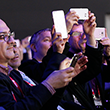 Closing
Closing
It's advisable to come early, as there are 300 delegates to be registered. The conferences will commence at 09:00 sharp, in order to meet the event schedule.
![]() Location: In front of the main Conference Hall
Location: In front of the main Conference Hall
Who runs the show?

Charles Ashworth is the Chief People Officer at Copper CRM, Inc. where he leads the global Human Resources organization and is also a member of the governing board of directors of NCHRA, and the author of an upcoming book, The Row Captain. Charles has been instrumental in Hacking HR’s SF Chapter, bringing thought leadership to the discussion of emerging technologies. With 25 years of significant experience in key leadership roles at high-growth organizations, Charles has successfully reorganized entire company cultures and visions to adopt a “one team,” collaborative approach time and time again. He is active in the transformation of the human resources role in business, publishing and speaking on the changing landscape of the profession.
About the Speaker:

Kathi Enderes, PhD · Vice President, Talent & Workforce Research Leader · Bersin Deloitte Consulting
Kathi leads talent and workforce research for Bersin Deloitte Consulting, enabling organizations to transform work and the workforce experience for increased performance and productivity. With more than 20 years global human capital experience from management consulting with IBM, PwC and EY, and as a talent management leader in large complex organizations, she specializes in people strategies, workforce planning and analytics, talent management, performance management, and change management.
Kathi is passionate about helping organizations transition to the future of work by empowering people to do their best work. She holds a doctoral degree in mathematics and a master’s degree in mathematics from the University of Vienna, Austria.
Presentation focus:
∙ People analytics is a hot topic and can get outsized results
∙ Most organizations do not do it well
∙ A holistic approach is most successful - going beyond tools, technologies, cool analytics or data scientists
∙ Giving insights back to each person can scale productivity and performance significantly
Overview:
Ninety percent of the data in the world has been created within the last two years alone, and the continued emergence of new technologies will likely increase that rate even more. HR leaders have been attempting for years to use people analytics to turn this vast amount of data into actionable insights, but many still struggle with how and where to apply people analytics to maximize the return on investment. In the coming year, more and more organizations will start to apply people analytics in a new way, with a direct focus on the individual, rather than through HR or leaders—a bottom-up approach, as opposed to just top-down.
∙ People analytics will augment the workforce and the workplace
∙ People analytics will support individuals in the flow of work
∙ People analytics will free up leaders to enable the productive workplace
∙ The people analytics-enabled workplace will become a reality
Key take-aways:
1. Sophisticated analytics, data science and technologies are not enough to make an impact
2. Scaling analytics for impact is challenging
3. Giving each person their own data can drive culture
The coffee-break makes for a great occasion to mingle around some 300 delegates, share instant feedback about presentations you enjoyed the most, engage in casual chat and naturally visit the sponsors exhibition area.
![]() Location: HR Tech Expo in front of the main conference hall
Location: HR Tech Expo in front of the main conference hall
Presentation focus:
∙ Provide differences between operational reporting and advanced analytics on people, process and technology framework
∙ Steps to follow when establishing an Analytics area
∙ Integration of Analytics with HCM solutions
∙ Provide examples of work - projects and deliverables for each work stream
∙ Outline main challenges and opportunities (integration points) when establishing an analytics group
Overview:
Some 8 years ago I started the journey to establish an HR Analytics team responsible on delivering Operational Reporting and Advanced HR Analytics. It has been an interesting and challenging journey since the concept of HR Analytics was new and had a different meaning across HR and the business. In this journey I had to design processes, establish service agreements with multiple stakeholders (including HR Strategic Partners, HR Centers of Excellence and Business Analytics Groups), and outline the main capabilities and competencies required for this team.
Many organizations want to start or are in the process of implementing an HR Analytics group. With this presentation I want to share my experience in establishing an HR Analytics team, main challenges, roadblocks and key tips for a successful implementation. In the last years we were able to move to a more mature analytics model and provide fact-based information for decision making. I will talk about:
1. Overview of analytics service delivery model - explain differences between operational reporting and advanced analytics
2. Steps followed to enhance and streamline operational reporting - challenges and examples. Results and best practices
3. Steps followed to establish an advanced analytics service delivery model - challenges and opportunities, with examples
4. What is next on People Analytics? AI, Machine Learning, RPA
Key take-aways:
1. Outline an analytics service delivery model
2. Differences between operational reporting and advanced analytics
3. Integration of robotics, AI, Machine Learning with Analytics
 Speaker: Juan Carlos Cabanillas Leon · Team Lead HR Effectiveness, Reporting and Analytics · Suncor Energy
Speaker: Juan Carlos Cabanillas Leon · Team Lead HR Effectiveness, Reporting and Analytics · Suncor Energy
Presentation focus:
The importance of emotion, storytelling, visualization and the role of the receiver.
Overview:
Having the data isn't enough. There is a fundamental difference between providing someone with information and inspiring a person to take action, make a decision, or believe with conviction. Join Heather Whiteman, an expert and teacher in the field of people analytics, for insights on how you can leverage the power of people analytics to persuade and inform.
Key take-aways:
1. Data isn't enough.
2. You must build a story and inspire others.
3. Your people analytics are only powerful if they can be used.
 Speaker: Heather Whiteman, PhD · VP, Global Head of Integrated Talent Management, People Analytics, Digital Learning & Development, and HR Operations · GE Digital
Speaker: Heather Whiteman, PhD · VP, Global Head of Integrated Talent Management, People Analytics, Digital Learning & Development, and HR Operations · GE Digital
Presentation focus:
· AI should be used in harmony with people, to create augmented intelligence not only automation
· HR process imperatives for today's workforce - using empathy and trust to drive performance
· Human skills are the building blocks of how augmented intelligence will function in the future of work
· Using advanced technology to scale up understanding, to meet workforce expectations and deliver a more human experience
Overview:
The reality is, in the “Future of Work” all jobs will change, for those jobs which remain the imperative skills needed will adapt to the technology available forming “Superjobs”. With AI permeating every industry at a rate which is unprecedented, economist expect that AI will cause the 4th Industrial revolution. In this new reality, and in many cases already today, the focus on sourcing, reskilling, and leading individuals inside an organization must always consider AI and how that person in the loop will use the technology to augment their intelligence. When you can understand the individuals in your organization beyond their education, past roles, and hard skills you can begin to shift your focus from the way it used to be to a more human and future forward strategy of agility and adaptability.
Companies around the world are reorganizing their businesses to the old adage “The customer is the boss” but what we might be missing is that in order to do this we must also relentlessly focus on the unique individuals that comprise our companies and how we lead them in the new paradigm that is the “Future of Work”. To enable a customer first business, one must first have an employee first organization, one which caters to a personalized employment experience, one that values diversity of thought, and one which is organized for agility, empathy, quick decision making and problem solving.
Businesses are living in a Volatile, Uncertain, Complex, and Ambiguous world, but so are we! We can better help ourselves as one of those unique individuals by knowing exactly who we are inside and the blind spots we have. And as leaders, if we can better understand how to organize our teams and lead the unique persons within them, we’ve unlocked the organization of the future. An organization that can now live the old adage of a customer first mentality, creating a strategic advantage through personalized experiences for your customers but also for your employees alike. Learn how to navigate this VUCA, customer first world with agility and adaptability, by putting your people and your customers first each day.
Key take-aways:
1. Progress and benefits of humans using AI
2. Soft (Human) Skills will be and to some extent already are the most important skills to understand in the FoW
3. Adaptability is what leaders need, to drive value at all levels. Today you can measure it in your people
 Speaker: Jake Carpenter · Chief Evangelist · Pacific Reach Co.
Speaker: Jake Carpenter · Chief Evangelist · Pacific Reach Co.
A great opportunity to engage in a casual chat with speakers and your fellow delegates. Lunch will be served at the main hotel restaurant, providing a variety of the best international cuisine.
![]() Location: Main hotel restaurant
Location: Main hotel restaurant
Presentation focus:
· TIBCO has modeled attrition and hiring patterns using probabilistic regression methodology and was solely using internal data (promotion history, level, salary, etc.) however, the models had a large stochastic element explained by external labor market and personal reasons.
· In an effort to be more explanatory and meaningful, we used data from the Global Economic Policy Index to better understand external pressures on our internal data.
· This uncertainty data on global economies helped us better anticipate voluntary attrition and budget more accordingly and more timely for replacement hiring.
· This methodology also helped us understand both our elastic and inelastic causes of attrition so that we could more deliberately address them.
With recruitment, uncertainty metrics have allowed us to pivot to different economies for more efficient hiring where possible.
Overview:
I plan to introduce the concept and methodology of uncertainty using the Global Economic Uncertainty Data and explain its importance in contributing to attrition modeling. I'll demonstrate some of the global uncertainty and those trends and then I will overlay the uncertainty with a sampling of TIBCO's attrition patterns and hiring patterns to show the relationship. I will then discuss brief outcomes and how this data has been used by our group. I'll follow with a Q&A.
Key take-aways:
1. The labor market and the inclusion of external data to your company is essential in augmenting the strength of your human capital analytics.
2. An increasingly uncertain market leads to more employer control while a certain labor friendly market leads to employee control. Different sections of your business will be more resilient to these external forces.
3. Using uncertainty coefficients in your modeling will better predict and forecast future attrition and will refine expectations for hiring and the ease at which you hire.
 Speaker: Nicholas Jesteadt · Data Analytics Manager · PTIBCO Software
Speaker: Nicholas Jesteadt · Data Analytics Manager · PTIBCO Software
Presentation focus:
∙ Our employees are our most valuable asset, and in order to engage them, we must become skilled in hearing and acting on employee voice.
∙ The Annual survey method is outdated, and there are far better ways to engage today’s innovative, modern workforce.
∙ To learn how to most effectively utilize employee voice, we will look at proven methods and practical solutions.
∙ Beyond just listening to employee voice, we will talk about how to act – different ways to approach employee voice.
∙ Let’s talk about technology in our modern era, and how to transform data into insights.
∙ We’ll share some success stories – these are the companies doing it right, companies who are paving the way for giving employees a voice and leaders actionable insights.
Overview:
In this session, we will explore the Evolution of Employee Voice to gain a deeper understanding of why certain engagement methods are outdated or are no longer adequate on their own.
In order to really bring the power of Employee Voice to life, we will examine proven, effective methods and practical solutions to supporting an inspirational future of employee voice. This session will address different ways to approach Employee Voice and utilize data for the wellbeing of all parties involved, improving work lives from the top executive to the newest employee and intern.
We’ll talk about cutting edge technology that is effective in transforming data into insights, such as Natural Language Processing, which helps companies to make sense of thousands of employee comments in real time by offering themes and sentiments of employee comments.
We’ll talk about how to use Consumer Principles with your Employee Strategy, what it means to be agile, and utilizing your managers to reach success.
Furthermore, we’ll share success stories and outline how different companies are doing a great job at activating Employee Voice, and what we can learn from them. Employee Voice is the future of HR.
Key take-aways:
1. Why focusing on a better Employee Voice strategy is important to positively impacting employee engagement
2. Understand the evolution of Employee Voice and why certain methods are outdated and no longer adequate on their own, to modernize current People Strategies
3. Proven effective methods and practical solutions to supporting an inspirational future of Employee Voice and Examples of companies that are doing it well to take back into their own organizations
 Speaker: Rob Catalano · Chief Engagement Officer · Worktango
Speaker: Rob Catalano · Chief Engagement Officer · Worktango
The coffee-break makes for a great occasion to mingle around some 300 delegates, share instant feedback about presentations you enjoyed the most, engage in casual chat and naturally visit the sponsors exhibition area.
![]() Location: HR Tech Expo in front of the main conference hall
Location: HR Tech Expo in front of the main conference hall
 Kathi Enderes, PhD · Vice President, Talent & Workforce Research Leader · Bersin Deloitte Consulting
Kathi Enderes, PhD · Vice President, Talent & Workforce Research Leader · Bersin Deloitte Consulting
 Rob Catalano · Chief Engagement Officer · Worktango
Rob Catalano · Chief Engagement Officer · Worktango
 Manisha Gupta · Global Head of People Analytics Product Management · Oracle
Manisha Gupta · Global Head of People Analytics Product Management · Oracle
 Heather Whiteman, PhD · VP, Global Head of Integrated Talent Management, People Analytics, Digital Learning & Development, and HR Operations · GE Digital
Heather Whiteman, PhD · VP, Global Head of Integrated Talent Management, People Analytics, Digital Learning & Development, and HR Operations · GE Digital
 Charles Ashworth
Charles Ashworth
 Closing
Closing
See you again next year!
what people say